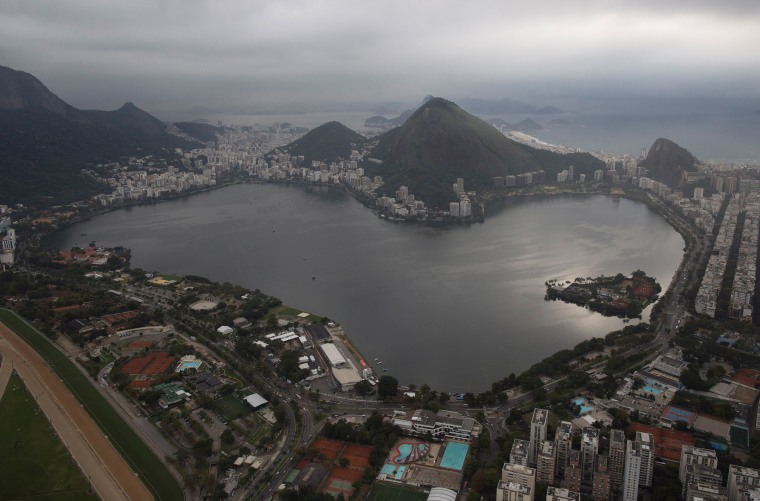The waters in Rio de Janeiro, host of the 2016 Summer Olympics, are teeming with viruses and bacteria from human feces, an investigation by the Associated Press has found.
In some tests, the levels of contamination are up to 1.7 million times what would be considered hazardous on a California beach, according to the AP analysis, which is the first independent testing for both viruses and bacteria at Olympic sites. Brazilian officials and the International Olympic Committee only test for bacteria.
Fevers and stomach problems have already beleaguered some athletes training in Rio, the AP reported. Because most sewage is not treated in Brazil, dangerous waste freely makes its way to bodies of water where Olympians will swim and boat.
Read the AP Investigation: Olympic Teams to Swim, Boat in Rio's Filth
Both the Brazilian government and the IOC's medical director have said the venues will be safe by the time competition starts, the AP reported.
But they have their work cut out for them: The smell of sewage wafts through Rio's air — and beaches have been abandoned because of surf that's turned putrid with waste.
"It's all the water from the toilets and the showers and whatever people put down their sinks, all mixed up, and it's going out into the beach waters. Those kinds of things would be shut down immediately if found [in the United States]," John Griffith, a marine biologist at the Southern California Coastal Water Research Project, told the AP after examining the test results.
Brazilian regulations for water safety, like almost all countries, are based on bacteria, said Leonardo Daemon, coordinator of water quality monitoring for the state's environmental agency.
RELATED: Will Rio Be Ready? Countdown Begins to 2016 Summer Games
"You don't have a standard for the quantity of virus in relation to human health when it comes to contact with water," he told the AP.

The Summer Games will attract more than 10,000 athletes, representing 205 nations. Nearly 1,400 of them will be sailing, swimming, canoeing and rowing in Rio, the AP reported.
Four rounds of tests were conducted on the three Olympic water sites: Marina da Gloria in Guanabara Bay, Copacabana beach, and the Rodrigo de Freitas Lake. Not a single venue was found to be safe for swimming or boating, according to the AP's viral tests.
Members of Austria's sailing team have started washing their faces with bottled water whenever they get splashed in the face with waves, but they still are getting sick.
"I've had high temperatures and problems with my stomach," sailor David Hussl told the AP. "It's always one day completely in bed and then usually not sailing for two or three days."
An American expert in waterborne viruses, Kristina Mena, said that the levels found in the waters mean someone would have a 99 percent chance of infection from ingesting a mere three teaspoons of water.
Last year, the mayor of Rio told NBC News pollution was a big problem, but he vowed the city would be Olympics-ready by 2016.
"I can guarantee these games will be ready on time. One hundred percent. And I can guarantee you, that this is going to be the greatest legacy in Olympics history," Eduardo Paes told NBC News.
